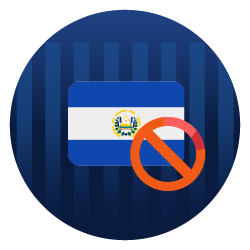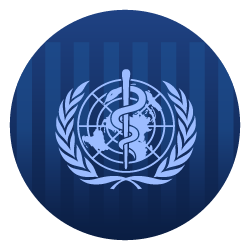Here are a few of the most commonly asked questions.
FREQUENTLY ASKED QUESTIONS
Why are women who experience obstetric emergencies, out-of-hospital deliveries, natural loss of their pregnancies, or untimely deliveries sentenced to more than 30 years in prison?

Complications can occur at any stage of a person’s pregnancy. When they do, women must receive urgent, compassionate medical attention and emotional support. However, women in El Salvador, especially those who do not have economic resources for private health care, are arrested on suspicion of abortion and taken to jail at the first sign of pregnancy loss. As in many cases, obstetric emergencies that occur in advanced stage of pregnancy cannot be considered abortion within EL Salvador’s legal system since the Ministry of Health and the Pan American Health Organization define abortion as the loss of the fetus in the first 22 weeks pregnant or a fetus that weighs less than 500 grams. For this reason, the Attorney General of the Republic changed the classification of the crime to aggravated homicide rather than abortion, assuming that pregnant women intentionally lose their pregnancy. The women are then charged with prison sentences of up to 40 years.
How many women are in prison due to an obstetric emergency?

To date, more than 50 women have been freed from prison, after being unfairly imprisoned for experiencing obstetric emergencies. La Agrupación Ciudadana por la Despenalización del aborto knows and works actively in 17 cases of women who are unjustly in prison, because the prosecutor’s office classified their obstetric emergencies as aggravated homicides. Fifteen of them have received a final conviction, while the other two are awaiting trial. In all cases, the women face sentences of more than 30 years in prison.
Why is abortion totally prohibited in El Salvador?

The Penal Code enforced in El Salvador totally prohibits abortion and condemns its practice with penalties of 2 to 8 years in prison, even when the interruption of pregnancy is necessary to save the pregnant person’s life or if abortion is medically recommended for the health of girls and women facing high risk pregnancies.
What are the main consequences of the total ban on abortion in El Salvador?

- The systematic sentence to more than 30 years in prison of girls and women who suffer obstetric emergencies and pregnancy complications that result in loss of pregnancy.
- Complicated pregnancies (ectopic pregnancy, pre-existing diseases like cancer or serious heart disease, etc.) are a death sentence for women.
- It forces girls to be mothers, risking their health and life because their bodies are not prepared for pregnancy and childbirth.
- Survivors of rape or sexual coersion are forced to carry their pregnancies to term.
Women have no other option but to carry non-viable pregnancies to term which can irreversibly affect their physical, mental and emotional health. - Increased rates of mortality and morbidity related to unsafe abortions when carried out by people who lack the necessary skills or in an environment lacking minimum medical standards.
- Medical professionals and physicians feel forced to report women to authorities even if interrupting a pregnancy is needed because the pregnant person’s life is at risk. If they do not cooperate, their medical licence could be at risk. This places pressure to ignore their own professional opinion on what is best for their patient.
- It makes safe abortion a class privilege, since girls and women who have economic resources can access quality services while those who live in poverty are condemned to hiding and putting their own health at risk.
Why should physicians be empowered to terminate unviable or high-risk pregnancies?

Doctors and health professionals must be empowered to terminate pregnancies that endanger the life, health and dignity of girls and women without fear of being punished by law. In addition, they must respect the confidentiality of their patients at all times and ensure their overall well-being when pregnancy affects their physical or mental health.
What countries totally prohibit abortion?

Currently, only 9 countries in the world totally prohibit the termination of pregnancy, even when it represents a real danger to the health and lives of girls and women. Four of these countries are in Latin America: El Salvador, the Dominican Republic, Honduras and Nicaragua.
What is the World Health Organization’s position on abortion?

The World Health Organization considers access to safe abortion services as a necessary element to prevent maternal morbidity and mortality, and should be part of the primary health services.
Abortion is unsafe when performed by a person lacking the necessary training, when it is performed in a setting that does not meet minimum medical standards, or when the two are combined.
What do obstetricians and gynecologists think about the total ban on abortion in El Salvador?

The Board of Directors of the Association of Gynecology and Obstetrics of El Salvador agree that abortion be allowed if a pregnant person’s life is in danger, if the pregnancy is a result of rape or sexual coercion, or if a fatal abnormality is detected during the pregnancy. They also state that non-punishable abortion must be done within the public or private hospitals, not in doctors’ clinics.
This is an official position given by ASOGOES on November 14, 2016 before the Legislation and Constitutional Points Commission of the Legislative Assembly, in reference to the proposed Reform of Art. 133 to decriminalize abortion on four grounds.
Is abortion the same thing as miscarriage?

Misconceptions about miscarriage are widespread. Many people believe they occur only rarely, for example, or that they can be caused by lifting heavy objects or previous contraceptive use. However, miscarriage can occur at any phase of a pregnancy. Some reasons include a more advanced maternal age, previous miscarriages, being extremely under- or over-weight, smoking, alcohol consumption, persistent stress, working night shifts, and constant exposure to air pollution or pesticides.
Globally, an estimated 23 million miscarriages occur every year
What is the maternal morbidity and mortality rate in El Salvador?

In 2020, according to the Ministry of Health (MINSAL), there were 46 registered maternal deaths, including 4 girls and adolescents under 18 years of age. The rate increased by 70.36%, compared to 2019, when 27 cases were reported.
According to the World Bank, for 2017 the maternal mortality rate was 46 per 100,000 live births.
What organizations work to free women and decriminalize abortion in El Salvador?

The Citizen Group for the Decriminalization of Abortion, founded in 2019, works to defend prosecuted women and those already sentenced. As a result of their work, they have achieved the freedom of 41 women. The Foundation for Studies for the Application of Law, FESPAD, has also defended women prosecuted for abortion or obstetric emergencies.
Various organizations have actively participated in the fight for women’s freedom, including the Feminist Collective for Local Development, the Amorales Collective, the Ameyalli Young Feminist Women’s Association, ORMUSA, the Mesoamerican Defenders Network, and ORMUSA, among others. International organizations also include the Center for Reproductive Rights (CRR); IPAS, Women’s Equality Center (WEC), and the Center for Justice and International Law (CEJIL).
How can I help free women unjustly imprisoned for obstetric emergencies in El Salvador?

Please share this campaign and the stories of the women who have been unjustly imprisoned due to an obstetric emergency, an unfair trial, and the systematic persecution of girls and women in El Salvador. You can also follow La Agrupación Ciudadana on their social networks to receive more information.
